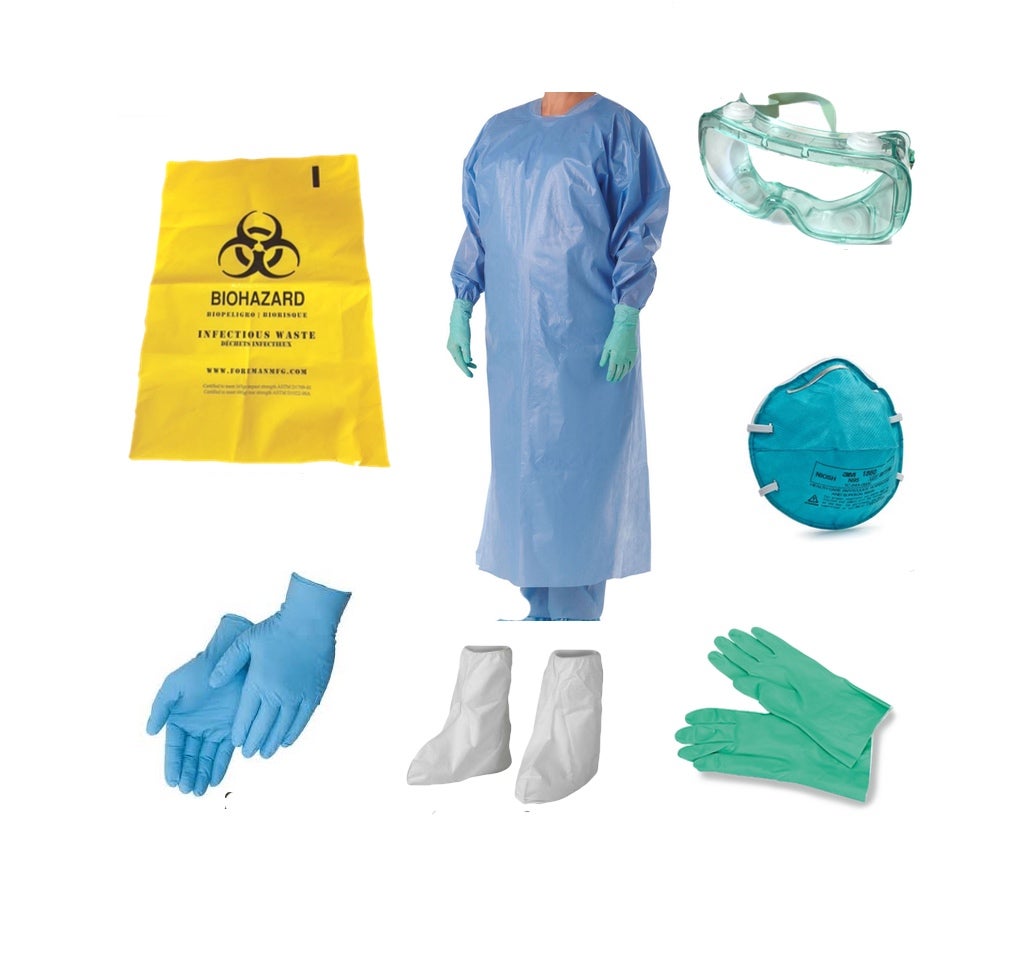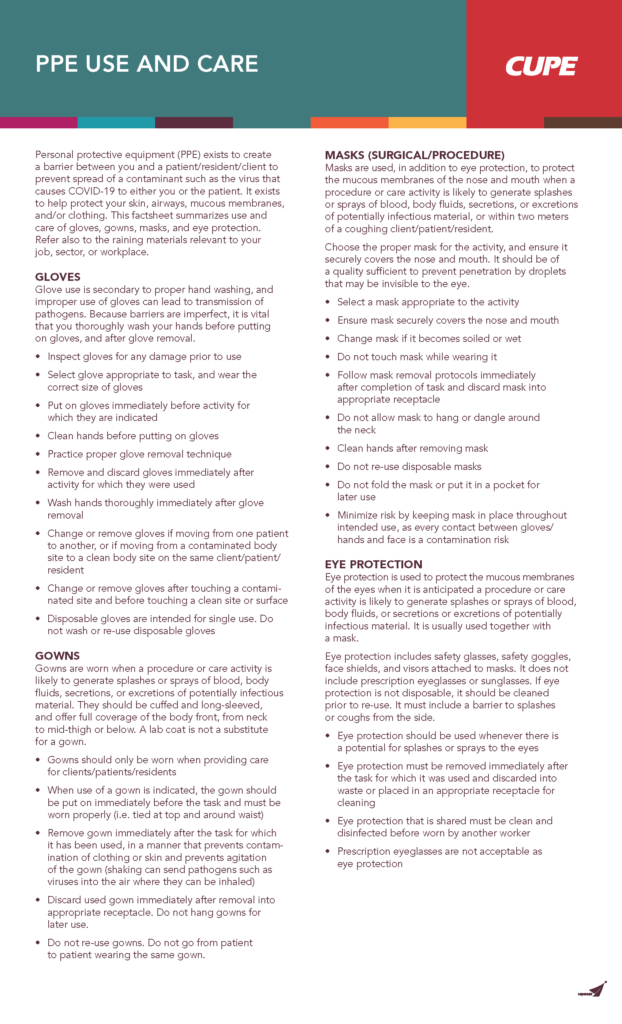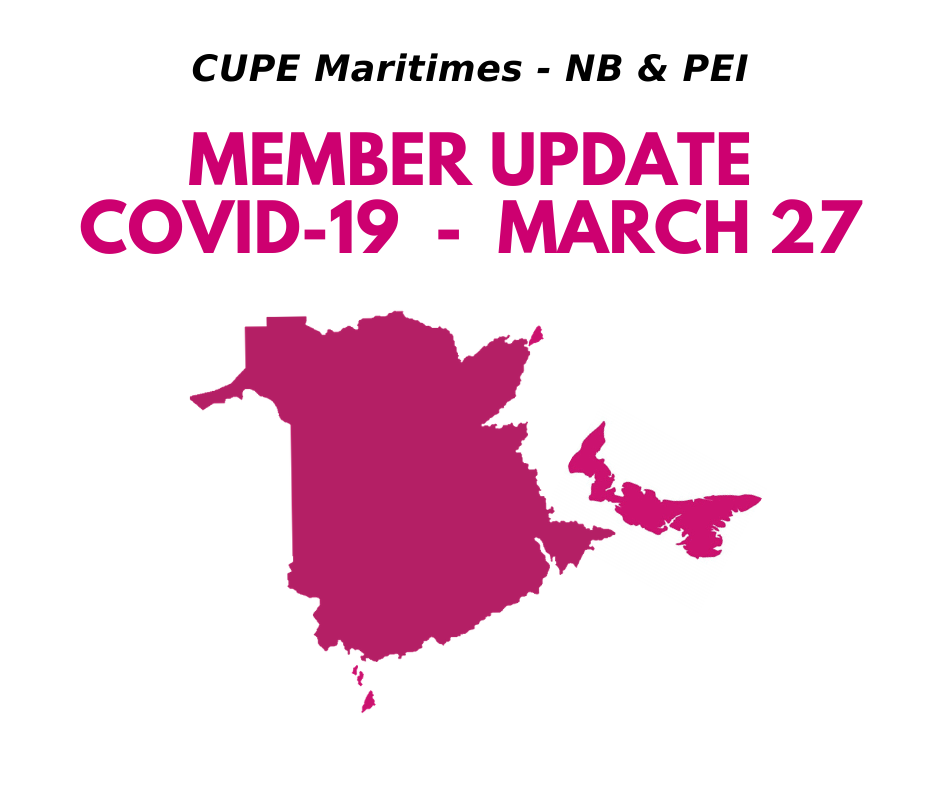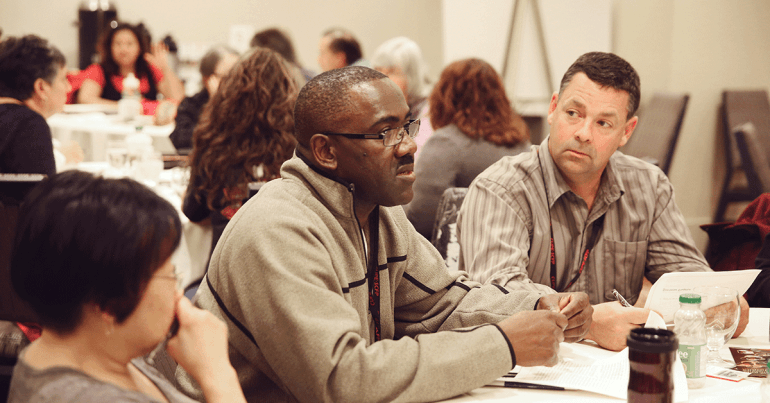Dear Brothers and Sisters:
Thanks to a fortunate mix of hard work, patience, front-line efforts, geography and a pinch of luck, PEI and NB are both experiencing below average progression rates of COVID-19.
Despite this relatively enviable position in our country, the Federal government has not indicated when they will seriously consider loosening public health restrictions to reopen the domestic economy. This will be likely done in phases with some regions and industries starting sooner than others. It is too early to say what will happen.
Members are doing important work across both provinces in our region during the COVID-19 pandemic, and the public is noticing. This is good news for us, as before this crisis, too many front-line workers were forgotten or underappreciated by government. Keep up the good work!
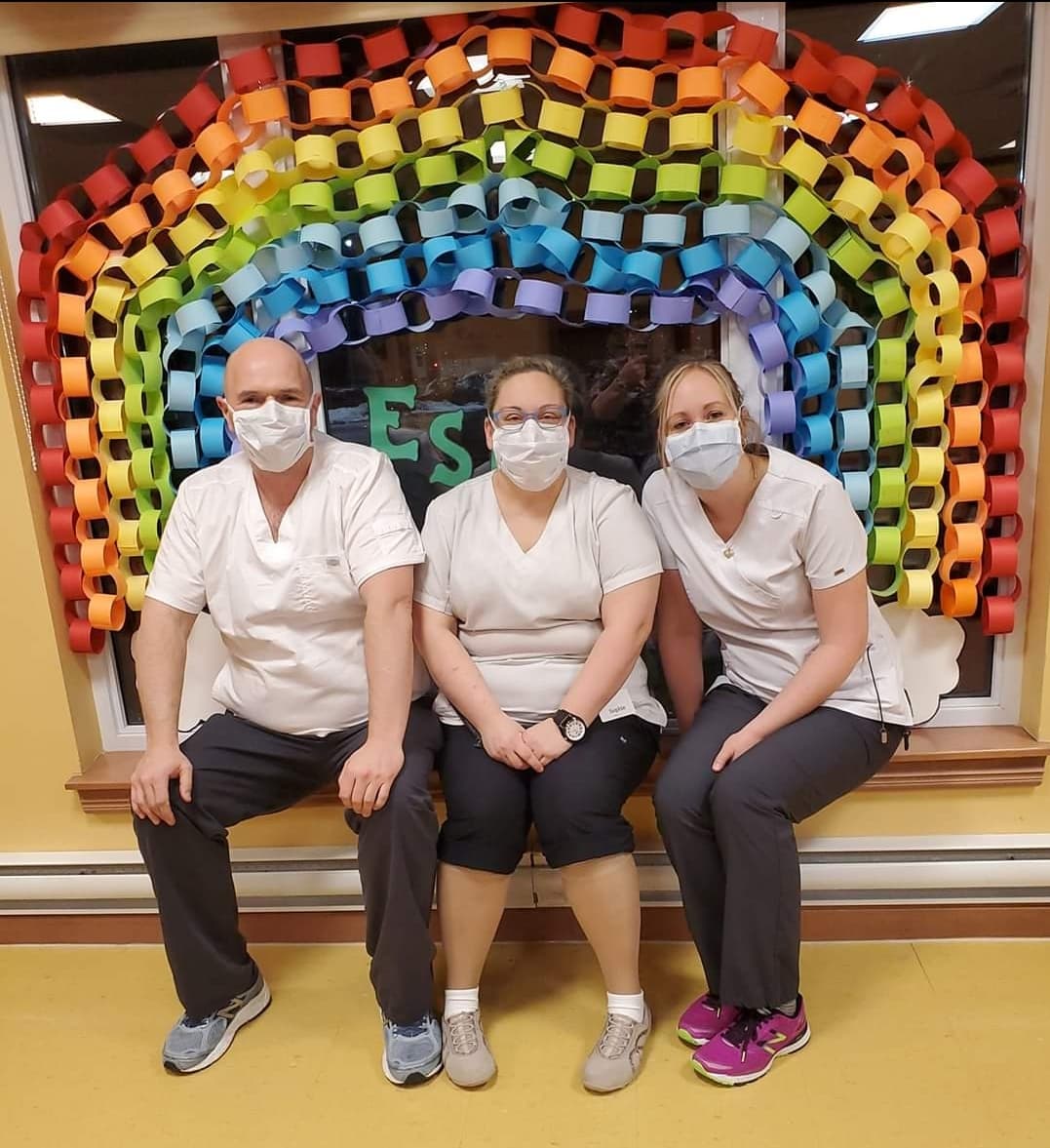
The CUPE Maritimes staff is doing phenomenal work and I want to recognize their efforts. They have been “behind the scenes” working long hours ensuring CUPE members are having their rights respected and that information that members need is being shared. We have daily staff calls to share information and work collaboratively and this united and consistent approach is working very well in our region.
Bargaining Paused Until May 11th
As you were already aware of the bargaining talks being paused, I wanted to let you that there will be no bargaining at least until May 11th, 2020. On that day, we will reassess the situation and inform members. For the moment, government and employer negotiators cannot meet, as there is still not enough safety to permit gatherings or hold in person talks.
Meeting virtually and doing union business in a new way
As you were already aware of the bargaining talks being paused, I wanted to let you that there will be no bargaining at least until May 11th, 2020. On that day, we will reassess the situation and inform members. For the moment, government and employer negotiators cannot meet, as there is still not enough safety to permit gatherings or hold in person talks.
ass gatherings will likely not be feasible until restrictions are lifted in many, many months from here. Therefore, every local should do all they can to have the capacity to conduct all necessary business according to their bylaws. This means adopting new technologies and online meeting tools. Talk to your servicing reps on electronic voting tools and the best way to keep conducting union business.
REMINDER: Every CUPE member must register online so that we can have emergency communication lines and electronic voting capacity. Please ask your local union rep for the registration link.
It is very important that you add your current local number in the form. If you do not know your local number, please clearly indicate the employer you work for (where you work) in the box titled “Name of Employer”.
Personal cellphone numbers (not work cellphones) are needed to ensure mass member emergency texting. To keep our lists as “clean” as possible, we ask that you do not post the links on social media.
Updates on the Canada Emergency Response Benefit (CERB) and EI Emergency Response Benefit (EI-ERB)
CERB has been expanded and made more flexible. The federal government is making changes to aid seasonal workers without jobs and those whose hours have been drastically cut but who still have some income. The changes will also allow people who are making up to $1,000 a month to qualify for the Canada Emergency Response Benefit, as well as those whose employment insurance benefits have run out since the start of the calendar year.
For those doing jobs deemed essential and making less than $2,500 a month, Prime Minister Justin Trudeau said the federal government will top up their pay to encourage them to keep going into work during the health and economic crisis.
To apply to the CERB, visit : https://www.canada.ca/en/services/benefits/ei/cerb-application.html
If you have any questions or concerns, please contact your Servicing Representative.
In Soldarity,
Sandy Harding
Maritimes Regional Director



